In early 2024, Bai Tranh commune (Nhu Xuan) was recognized as meeting advanced NTM standards after many years of efforts. As a mountainous commune with large potential of hills and forests, the locality has promoted its potential to develop production, becoming an outstanding criterion.
 Mr. Luong Kim Anh in village 10, Bai Tranh commune checks the growth of orange trees on the farm.
Mr. Luong Kim Anh in village 10, Bai Tranh commune checks the growth of orange trees on the farm.
Along the Ho Chi Minh road, the fertile undulating hills of Bai Tranh commune stretch endlessly. While many mountainous communes in the district and province are still mostly planted with acacia trees with low economic efficiency, in Bai Tranh this area has been covered with green by guava, dragon fruit, tea, orange, tangerine, grapefruit trees... The diligence of the people and the right orientation of Nhu Xuan district as well as Bai Tranh commune many years ago have turned this land into one of the "barnacles" of fruit trees in Thanh Hoa. Most of the red basalt hills in this land bordering Nghe An province have been transformed into production models according to planning, applying scientific and technical advances in production.
In village 10 of the commune, Mr. Luong Kim Anh's hill-forest farm model has become a model for local production development. Due to proactively accumulating and exchanging more than ten years ago, Mr. Anh has now arranged a production area that is quite scientific and has the largest scale in the region. Entering the hill area are areas where low-lying fruit trees are planted so as not to obscure the space, such as dragon fruit and guava. Next is the management house and workers' housing, surrounded by green-skinned grapefruit and sweet tangerines. Far from the house is the lychee growing area and rubber forest. Notably, most of this 8.5-hectare production area is equipped with a modern sprinkler system and drip irrigation to each orange and tangerine tree to replace human labor and save water.
According to Mr. Luong Kim Anh, up to now his family has 3.5 hectares of fruit trees, 4 hectares of rubber, 1 hectare of sugarcane. In the unpopulated area at the end of the hill, he built a 254m2 barn system to raise lean pigs, then released wild boars in a semi-natural way. All waste from the barn system is treated by biogas tanks and compost pits to turn waste into fertilizer for crops on the farm. Due to the large scale of production, for many years now his family has hired 7 workers to work regularly. Just for labor costs, he has paid nearly 450 million VND each year.
With 800 guava trees, 750 high-yield green-skinned grapefruit trees, and thousands of orange and tangerine trees, the total income from fruit trees on the farm each year has increased to more than 1 billion VND. Sugarcane hills and rubber forests also bring in stable incomes of 100 and 250 million VND each year, respectively. Revenue from pig farming also reaches more than 2 billion VND each year, not including nearly 100 million VND from bee colonies located right in his forest area. According to Mr. Anh's calculations, in recent years, the family's total revenue has fluctuated between 4 and 4.5 billion VND, excluding expenses and labor, the profit is still around 2 billion VND each year.
In the whole commune, it is difficult to count the number of successful farming households on the hills of their homeland with an income of hundreds of millions of dong each year, because they are in every village. In recent years, along with some communes in Thach Thanh district, Bai Tranh has emerged as a famous guava growing area of the province. Due to suitable soil conditions, the quality of guava is sweet, crunchy and delicious, so the product is sold to many northern provinces. Xa Doai orange trees have also affirmed their suitability with good productivity and quality on Bai Tranh land. The cultivation of guava and oranges has been linked and developed on a large scale, no longer spontaneous.
Pear guava here has been recognized as a provincial OCOP product since 2021 with the trade name "Pear Guava Nhu Xuan". Since then, the locality has had Bai Tranh Agricultural Service Cooperative to link and connect production households according to safe processes and modern farming techniques. The commune has arranged concentrated guava growing areas in hamlets 3, 6, and 10 with 15 participating households on a total area of 11 hectares, which are developing effectively. Guava here is also attached with a QR code to trace its origin and focuses on market development.
Although located in the mountainous area, agriculture here has long been associated with science and technology to improve productivity and increase income for farmers. A typical example is the high-tech production model of safe vegetable growing of Mr. Hoang Trong Luong in Nha May village with a modern greenhouse system. The owner of the model invested in building irrigation tanks, waste storage cells, agricultural product storage houses, arranging automatic electricity and water systems, and implementing a closed technical growing process.
With the role of a bridge for production as well as developing services for agricultural production, in Bai Tranh commune, there is also Vinh Thinh Bai Tranh Cooperative, which mainly does protection work, irrigation services, fertilizer supply... After nearly 4 years of operation, the Cooperative has shown its effectiveness, creating trust from members and local farmers.
From production development, the income of Bai Tranh people has continuously increased rapidly in recent years. According to statistics from the People's Committee of the commune, in 2022, the average income per capita reached 58.7 million VND/person, and by 2023, it reached 59.824 million VND/person. According to Criterion No. 10 of the advanced NTM commune on "income", Bai Tranh is a commune in the mountainous rural area 2, the average income per capita must reach 58 million VND/person/year or more, and so far the locality has exceeded the regulations. The multidimensional poverty rate of the commune has also decreased to more than 1%, while the regulation is only below 4%.
Article and photos: Linh Truong
Source


![[Photo] President Luong Cuong presents the decision to appoint Deputy Head of the Office of the President](https://vphoto.vietnam.vn/thumb/1200x675/vietnam/resource/IMAGE/2025/5/8/501f8ee192f3476ab9f7579c57b423ad)

![[Photo] Prime Minister Pham Minh Chinh meets with the Policy Advisory Council on Private Economic Development](https://vphoto.vietnam.vn/thumb/1200x675/vietnam/resource/IMAGE/2025/5/8/387da60b85cc489ab2aed8442fc3b14a)
![[Photo] General Secretary concludes visit to Azerbaijan, departs for visit to Russian Federation](https://vphoto.vietnam.vn/thumb/1200x675/vietnam/resource/IMAGE/2025/5/8/7a135ad280314b66917ad278ce0e26fa)
![[Photo] National Assembly Chairman Tran Thanh Man chairs the meeting of the Subcommittee on Documents of the First National Assembly Party Congress](https://vphoto.vietnam.vn/thumb/1200x675/vietnam/resource/IMAGE/2025/5/8/72b19a73d94a4affab411fd8c87f4f8d)
![[Photo] General Secretary To Lam begins official visit to Russia and attends the 80th Anniversary of Victory over Fascism](https://vphoto.vietnam.vn/thumb/1200x675/vietnam/resource/IMAGE/2025/5/8/5d2566d7f67d4a1e9b88bc677831ec9d)


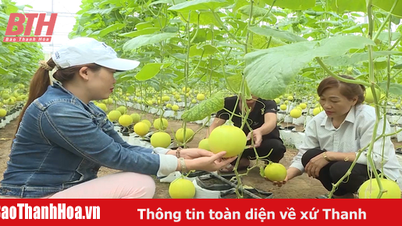





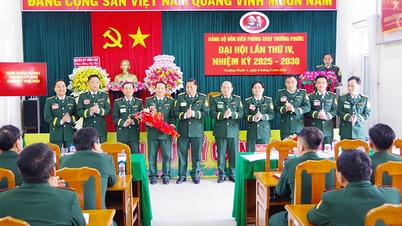



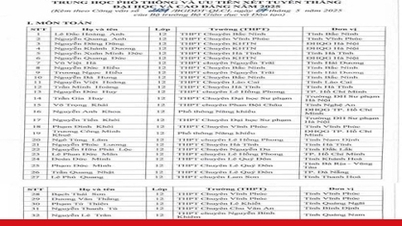





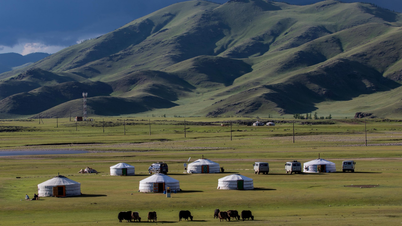
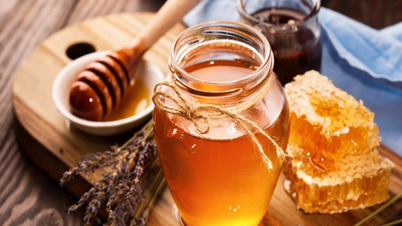
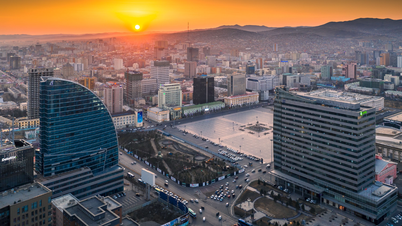


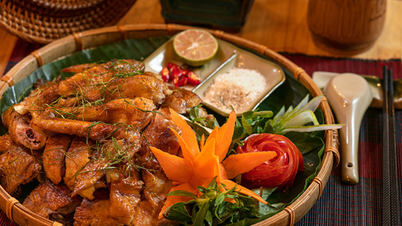

































![[Photo] Prime Minister Pham Minh Chinh talks on the phone with Singaporean Prime Minister Lawrence Wong](https://vphoto.vietnam.vn/thumb/402x226/vietnam/resource/IMAGE/2025/5/8/e2eab082d9bc4fc4a360b28fa0ab94de)












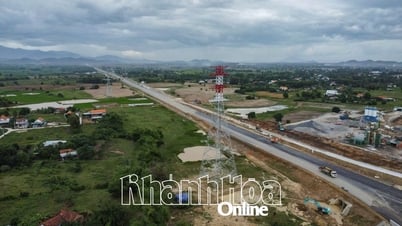


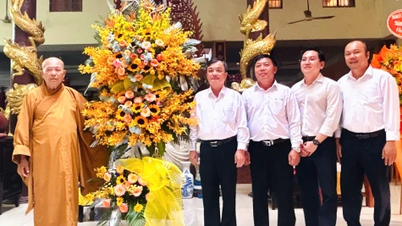

















Comment (0)